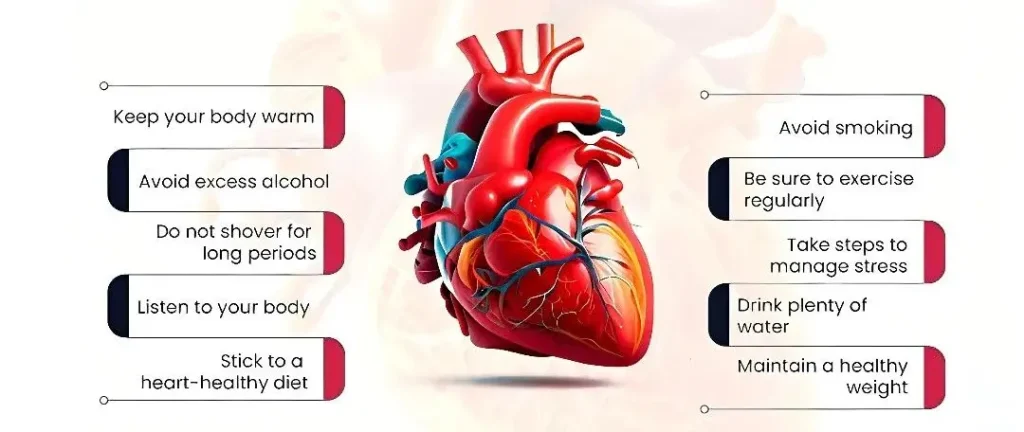
Heart Tumors: Rare but Critical
Heart tumors are uncommon but serious conditions that demand specialized attention. While primary heart tumors are found in less than 0.3% of the population, their effects on heart function and overall health can be significant. As the heart is vital to blood circulation and rhythm, both benign and malignant tumors can pose life-threatening risks. Early detection, understanding tumor types, and exploring treatment options are key to effective management.
What Is a Heart Tumor?
A heart tumor, or cardiac tumor, refers to an abnormal growth in or around the heart. These tumors are categorized into two main types:
1. Primary Cardiac Tumors
These originate in the heart tissue and are exceedingly rare. Most primary tumors are benign, with myxomas being the most common type, comprising about 50% of cases.
2. Secondary Cardiac Tumors
These tumors begin in other parts of the body and spread to the heart. Unlike primary tumors, secondary tumors are more common and typically malignant.
Types of Cardiac Tumors
Understanding the types of cardiac tumors is essential for selecting the most effective treatment approach.
1. Benign Cardiac Tumors
Non-cancerous and generally non-invasive, these tumors typically do not spread to other parts of the body. Common types include:
– Myxoma: Often forms in the left atrium, potentially obstructing blood flow.
– Fibroma: Commonly found in children, affecting the ventricular walls.
– Lipoma: Made up of fat cells, these tumors can lead to arrhythmias.
2. Malignant Cardiac Tumors: Cancerous and highly aggressive, malignant tumors often invade nearby structures and spread to other organs. Examples include:
– Angiosarcoma: Originates in the heart’s blood vessels.
– Rhabdomyosarcoma: Typically found in children, affecting the heart’s muscle tissue.
3. Secondary Cardiac Tumors : These result from metastatic cancers that spread to the heart, such as lung, breast, or kidney cancer, and are more common than primary cardiac tumors.
Heart Cancer Symptoms
Heart tumor symptoms can vary based on their size, location, and type. Common symptoms include:
1. Shortness of Breath: Often caused by obstruction of blood flow within the heart chambers.
2. Chest Pain: May mimic angina or result from pressure on surrounding tissues.
3. Heart Palpitations or Arrhythmias: Abnormal heart rhythms due to disruption of electrical signals in the heart.
4. Fatigue: Reduced cardiac efficiency can lead to decreased energy levels.
5. Swelling in the Limbs: Results from poor circulation or fluid retention.
6. Unexplained Fever or Weight Loss: These may occur due to systemic effects of cancer or benign tumors, such as myxomas.
Since these symptoms often resemble other cardiac or systemic conditions, accurate diagnosis is essential for effective management.
What Causes Tumors in the Heart?
The exact causes of heart tumors remain unclear, but several factors may contribute:
- Genetic Predisposition: Inherited conditions like the Carney complex increase the risk of developing myxomas.
- Radiation Exposure: Previous cancer treatments involving chest radiation can lead to secondary heart tumors.
- Chronic Inflammation: Persistent inflammation in cardiac tissue may trigger abnormal cell growth.
- Metastasis: Tumors from other parts of the body can spread to the heart via the bloodstream.
Identifying these factors helps with early risk assessment and preventive care strategies.
Diagnosis of Heart Tumors
Early and accurate diagnosis is crucial for effective treatment of heart tumors. Common diagnostic methods include:
- Echocardiography: Provides real-time images of the heart, helping detect tumors and their impact on blood flow.
- MRI or CT Scans: Offers detailed imaging to determine the tumor’s size, location, and potential spread.
- Biopsy: Analyzing a tissue sample confirms whether the tumor is benign or malignant.
- Electrocardiogram (ECG): Records electrical activity of the heart to identify arrhythmias caused by tumors.
Heart Cancer Treatment Options
Treatment for heart cancer or tumors varies based on the type, size, and location of the tumor. Common approaches include:
- Surgical Removal: This is the most effective option for benign tumors, such as myxomas. Surgery removes the obstruction and restores normal heart function.
- Chemotherapy and Radiation Therapy: These are primarily used for malignant tumors to reduce tumor size and control the spread of cancer.
- Targeted Therapy: Utilizes drugs that specifically target cancer cells while minimizing damage to healthy tissue.
- Palliative Care: Focuses on symptom relief and improving quality of life in advanced cases where curative treatment is not possible.
- Heart Transplant: In rare cases, a heart transplant may be necessary for severe damage or recurring malignant tumors.
Complications of Cardiac Tumors
If left untreated, cardiac tumors can result in serious complications, such as:
- Heart Failure: Tumors can block blood flow or impair the heart’s function, causing fluid retention and reduced cardiac efficiency.
- Stroke: Fragments of the tumor may dislodge and travel to the brain, resulting in embolic strokes.
- Arrhythmias: Tumors can interfere with the heart’s electrical system, leading to irregular heart rhythms.
Living with a Heart Tumor
A heart tumor diagnosis can feel overwhelming, but with proper care and lifestyle adjustments, you can enhance your quality of life and prognosis.
1. Regular Follow-ups: Routine medical check-ups are crucial for monitoring your condition and detecting any recurrence early.
2. Heart-Healthy Diet: Maintaining a balanced diet rich in nutrients supports overall cardiovascular health and recovery.
3. Stress Management: Incorporating stress-relief practices like yoga, meditation, or mindfulness can help manage emotional and physical challenges.
Why Choose Oxford Hospital for Cardiac Tumor Care?
Oxford Hospital stands as a leader in treating cardiac tumors, offering a patient-first approach and exceptional care. Key features include:
- Expert Cardiothoracic Surgeons: Highly skilled professionals with extensive experience in cardiac tumor surgeries ensure optimal outcomes.
- State-of-the-Art Technology: Equipped with advanced diagnostic and therapeutic tools to deliver precision care.
- Comprehensive Support: Multidisciplinary teams provide holistic care, from diagnosis through rehabilitation.
- : Personalized treatment plans are tailored to meet the unique needs of each patient.
Conclusion
Heart tumors, though rare, require specialized attention and care. From benign myxomas to malignant tumors, understanding the symptoms, causes, and treatment options is critical for timely intervention. With cutting-edge facilities and compassionate care, Oxford Hospital is your trusted partner in managing heart health.
Concerned about a heart tumor? Seek prompt care at Oxford Hospital—because your heart health is our priority.


